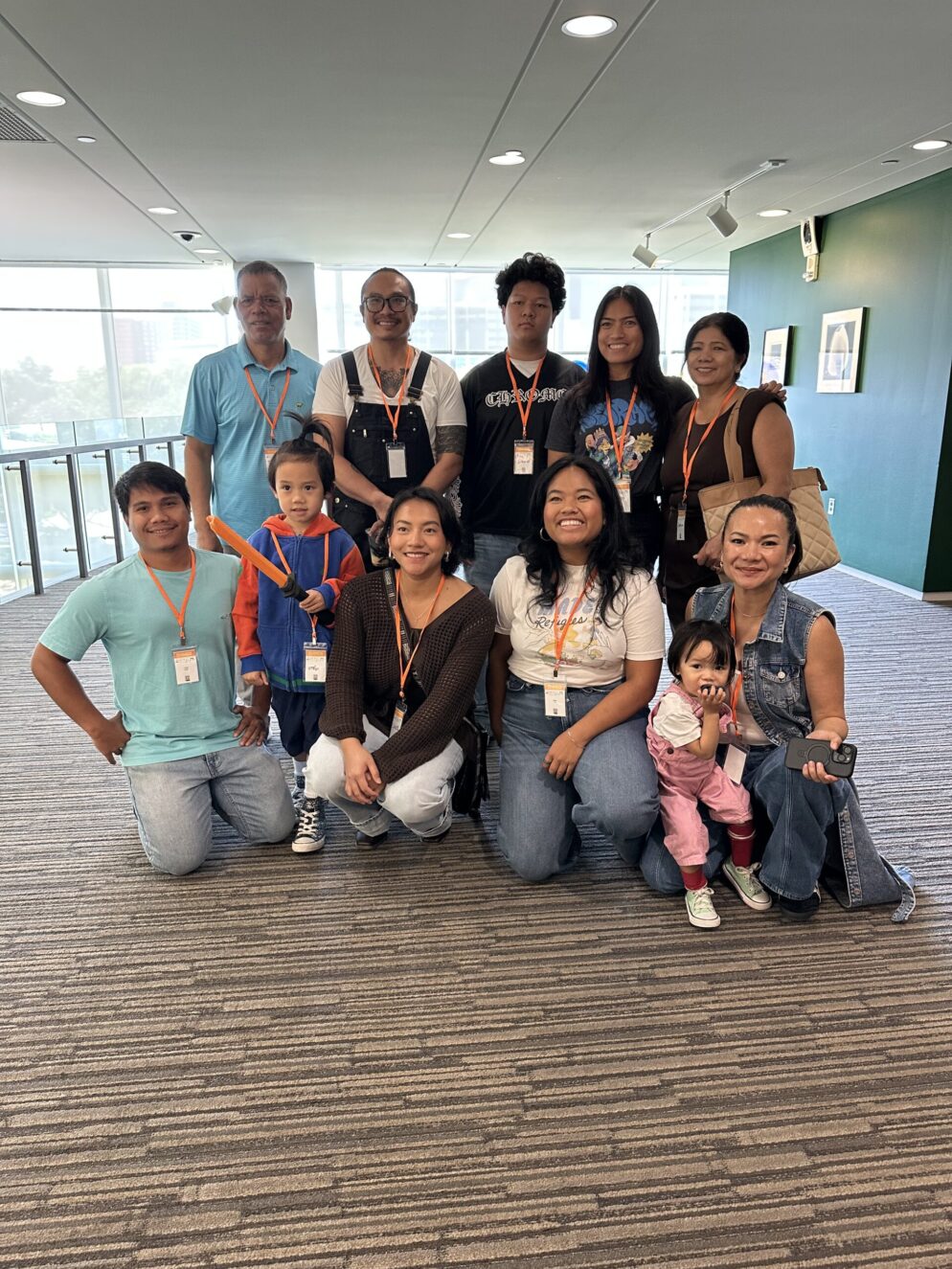The dimmed lights of the theatre intensify the image of my father on screen — his tanned face stretched, the hard-earned lines across his forehead and around his mouth illuminated. Mbo (“father” in the Bunong language) is the hardest worker I know, he is a man who has labored from sun up to sun down for most of his life. From picking, packaging, and selling coffee beans on our family’s farm in Dak Mil to scaling and cutting downed trees in North Carolina, my father has always worked with his hands to provide for us.
In the video, mbo recounts the harrowing journey that he and the other men from our village undertook to seek refuge from the persecution Montagnard families faced. During the American War, Montagnard fighters fought alongside American troops. When American forces withdrew, Montagnard allies were left behind, and the persecution against Montagnards only deepened. My father’s voice cracks as he describes the loneliness and uncertainty that he and the other men from our village felt as they crossed from Vietnam into Cambodia. I have to look away. It is rare to see him so vulnerable, baring the weight of this memory.
My father’s journey is not unique. Across generations, Southeast Asian parents and caretakers walked the ends of the Earth, traversed dense jungles, and braved tumultuous seas so that their children might live with safety, dignity, and hope. These sacrifices are the foundation of the Southeast Asian American community that exists today.
My family’s story is one thread in Southeast Asian American Journeys, a documentary series produced by Quyên Nguyen-Le in association with SEARAC and the Center for Asian American Media. At the North Carolina screening, I sat behind my family, watching their reactions as their stories appeared on screen. My parents squeezed my younger brother’s cheeks when he appeared on screen, embarrassing him with affection; my mom wrapped her arm around my sister when she spoke about the valuable work happening at SEAC Village in Charlotte, NC; and our former sponsors who helped resettle us in Greensboro wiped away tears as they reflected on our time together
In that moments, I was reminded that Southeast Asian American stories are not just about survival, but also about love, resilience, and community.
This year marks the 50th anniversary of Southeast Asian American resettlement. It is a moment to celebrate the strength of our families, our contributions, and our ongoing legacy. Yet this commemoration is shadowed by another truth: Southeast Asian American families continue to face separation and loss under the United States detention and deportation system. Refugees who once risked everything for safety are still treated as disposable, with policies that punish them decades after they rebuilt their lives.
We cannot honor Southeast Asian American histories without also protecting Southeast Asian American futures. To truly commemorate 50 years of resettlement, we must end the cycles of detention and deportation that tear apart our families and betray the sacrifices of those, like my father, who endured so much to give us a chance at life in America.

